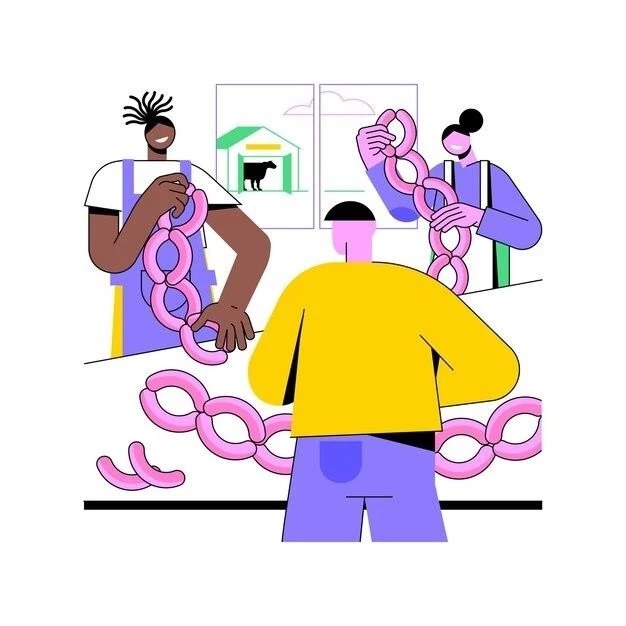Addressing the child’s medical, safety, and housing needs, as appropriate. Reactive Attachment Disorder (RAD) refers to children’s difficulties with engaging in meaningful relationships with primary caregivers.
Definition and Overview
Reactive Attachment Disorder (RAD) is a rare but serious condition where infants or young children struggle to form healthy emotional bonds with their caregivers. This disorder is typically a result of early neglect or mistreatment, leading to challenges in forming attachments and managing emotions.
Causes and Risk Factors
Reactive Attachment Disorder (RAD) in early childhood can be attributed to factors such as neglect, abuse, or inconsistent caregiving during the critical developmental stages. These experiences can hinder a child’s ability to form secure emotional attachments, leading to challenges in social interactions and emotional regulation.

Recognizing Symptoms of RAD in Early Childhood
Understanding the signs of Reactive Attachment Disorder (RAD) is crucial for early intervention and support.
Behavioral Signs
Behavioral signs of Reactive Attachment Disorder (RAD) in early childhood may include unexplained withdrawal, fear, sadness, irritability, and a general lack of interest in connecting with caregivers. It’s essential to recognize these behaviors early for appropriate intervention.
Emotional Signs
Emotional signs of Reactive Attachment Disorder (RAD) in early childhood may manifest as an inability to seek comfort or accept affection, a lack of trust in caregivers, and challenges in expressing or understanding emotions appropriately. Recognizing these emotional signs is crucial for providing targeted support and intervention for children with RAD.
Diagnosing and Treating RAD
Seek appropriate evaluations and therapies to address Reactive Attachment Disorder (RAD) in early childhood.
Diagnostic Process
When diagnosing Reactive Attachment Disorder (RAD) in early childhood, healthcare professionals utilize assessments and evaluations to rule out other potential causes and determine the appropriate treatment plan for the child’s specific needs.
Treatment Approaches
Treating Reactive Attachment Disorder (RAD) in early childhood involves therapies focused on building trust, promoting secure attachments, addressing emotional regulation, and enhancing social interactions. Seek professional guidance for tailored interventions to support the child’s emotional well-being.

Supporting Children with RAD
Addressing the child’s medical, safety, and housing needs, as appropriate. Seek professional guidance.
Importance of Early Intervention
Early intervention is crucial in supporting children with Reactive Attachment Disorder (RAD) to promote healthy emotional development and secure relationships. Seeking assistance and implementing strategies early can significantly impact the child’s well-being.
Creating a Safe and Nurturing Environment
Establishing a safe and nurturing environment is crucial for children with Reactive Attachment Disorder (RAD) to feel secure and supported. Consistent routines, positive reinforcement, and empathetic communication can foster a sense of safety and emotional well-being for these children.
Understanding the impact on social and emotional development is essential in managing Reactive Attachment Disorder (RAD) in adulthood.
Impact on Social and Emotional Development
Understanding how Reactive Attachment Disorder (RAD) affects a child’s social and emotional development is essential for providing appropriate care and support throughout their growth and development. Recognizing and addressing these impacts early can lead to better long-term outcomes for children with RAD.
Long-Term Outlook for Children with RAD
Understanding the long-term impact of Reactive Attachment Disorder (RAD) on social and emotional development is crucial for effectively managing the condition throughout adulthood.
Resources and Additional Support for Families Affected by RAD
Seek support groups, counseling services, and community programs for guidance in managing Reactive Attachment Disorder (RAD).
Support Groups and Counseling Services
Engaging with support groups and counseling services can provide valuable assistance and guidance for families affected by Reactive Attachment Disorder (RAD). These resources offer a supportive environment and strategies for coping with the challenges associated with RAD.
Community Programs and Educational Resources
Community programs and educational resources can offer valuable support for families impacted by Reactive Attachment Disorder (RAD). These resources provide information, guidance, and strategies to help families navigate the challenges associated with RAD and promote positive outcomes for children.
